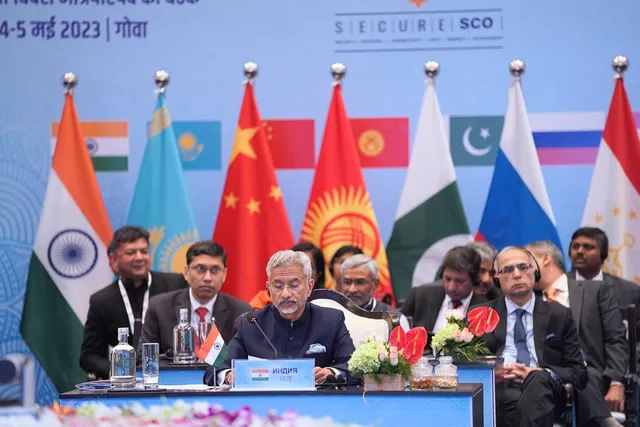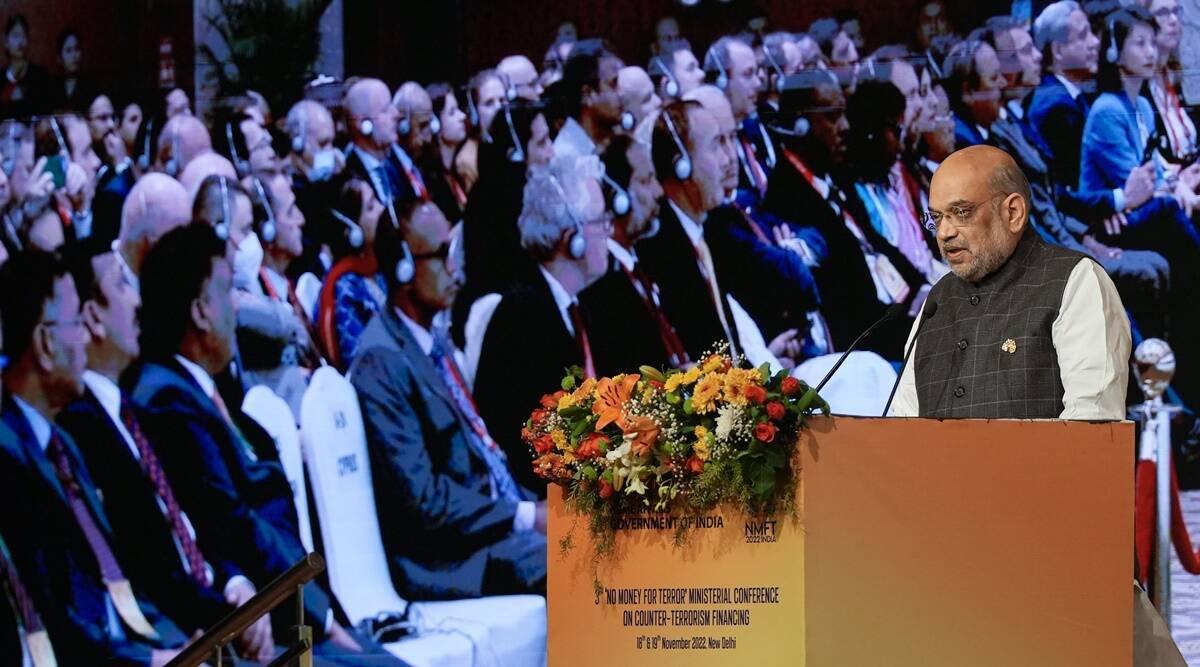NEW DELHI, July 4 (PTI): In a veiled reference to Pakistan, Prime Minister Narendra Modi on Tuesday told leaders of the SCO nations that the grouping must not hesitate to criticise countries supporting cross-border terrorism as an instrument of state policy and there must not be any “double standards” in combating terrorist activities.
With Pakistan Prime Minister Shehbaz Sharif, Chinese President Xi Jinping and Russia’s Vladimir Putin listening, Modi said at a virtual summit of the Shanghai Cooperation Organisation (SCO) that “decisive action” is required to deal with terrorism and terror financing.
Chairing the summit, Modi talked about the growing importance of the SCO and said, “It is our shared responsibility to understand each other’s needs and sensitivities and resolve all challenges through better cooperation and coordination.”
The remarks came amid the lingering border row between India and China.
In his opening remarks, Modi also highlighted the need for boosting connectivity, but asserted that it is essential to respect the basic principles of the SCO charter, especially the sovereignty and territorial integrity of member states, while making such efforts.
There has been increasing global criticism of China’s Belt and Road Initiative (BRI). India has been severely critical of the BRI as the project includes the so-called China-Pakistan Economic Corridor (CPEC) that passes through Pakistan occupied Kashmir.
On Afghanistan, the Prime Minister said the situation there has a “direct impact on the security of all of us” and it is important to ensure that Afghan territory is not used to destabilise neighbouring countries or to encourage extremist ideologies.
The prime minister also touched upon the global food, fuel and fertiliser crisis, highlighted the need for reform of the SCO and welcomed Iran as the new permanent member of the SCO. However, one of the major focus areas of his speech was combating the threat of terrorism.
“Terrorism remains a major threat to regional and global peace. Decisive action is necessary to meet this challenge. Terrorism may be in any form, in any manifestation and we have to fight together against it,” Modi said.
“Some countries use cross-border terrorism as an instrument of their policies; give shelter to terrorists. The SCO should not hesitate to criticise such countries. There should be no room for double standards on such a serious issue,” he said.
The prime minister also strongly pitched for deeper mutual cooperation to deal with terror financing and noted that the SCO’s RATS (Regional Anti-Terrorism Structure) mechanism has played an important role in this.
“We should also take more active steps to prevent the spread of radicalisation among the youth of our countries. The joint statement being issued today on the issue of radicalisation is a symbol of our shared commitment,” he said.
The virtual summit under India’s presidency was attended by leaders of Kazakhstan, Kyrgyzstan, Tajikistan, Uzbekistan and Iran as well.
The Prime Minister also spoke of various global challenges.
“The global situation is at a critical juncture. Food, fuel and fertiliser crisis is a big challenge for all the countries in the world surrounded by disputes, tensions and epidemics,” he said, without making any specific references.
“Let us think together whether we as an organisation are capable of meeting the expectations and aspirations of our people? Are we able to meet the modern challenges,” he asked.
“Is the SCO becoming an organisation that is fully prepared for the future? In this regard, India supports the proposal for reform and modernisation of SCO,” he said.
On the situation in Afghanistan, Modi said India’s concerns and expectations regarding that country are similar to those of most of the SCO countries.
Modi said ensuring humanitarian assistance to Afghan people, formation of an inclusive government, the fight against terrorism and drug trafficking and ensuring the rights of women, children and minorities in that country are “our shared priorities”.
“The people of India and Afghanistan share age-old friendly relations. Over the past two decades, we have contributed to the economic and social development of Afghanistan,” he said.
“We have continued to send humanitarian aid even after the events of 2021. It is essential that the land of Afghanistan is not used to destabilise neighbouring countries, or encourage extremist ideologies,” he said.
The prime minister also batted for boosting regional connectivity.
“Better connectivity not only increases mutual business but also increases mutual trust. But in these efforts, it is essential to respect the basic principles of the SCO Charter, especially the sovereignty and territorial integrity of member states.
“After Iran’s SCO membership, we can work for better utilisation of Chabahar Port. The International North-South Transport Corridor can become a safe and easy way for the landlocked countries of Central Asia to reach the Indian Ocean,” he said.
“We should realise its full potential,” he added.
India has been pushing for the Chabahar port project to boost regional trade, especially for its connectivity to Afghanistan.
Modi also called for removing language barriers in the SCO.
“We would be happy to share India’s AI-based language platform, Bhashini, with everyone to remove language barriers within the SCO. This can become an example of digital technology for inclusive growth,” he said.
Modi said the SCO can become an important voice for reform in other global institutions including the UN.
The prime minister also welcomed Iran as the new member of the SCO.
“At the same time, we welcome the signing of the Memorandum of Obligation for SCO membership of Belarus,” he said.
“Today, the interest of other countries in joining SCO is a proof of the importance of this organisation,” he added.
“In this process, it is necessary that the basic focus of the SCO remains on the interests and aspirations of the Central-Asian countries,” Modi said.







